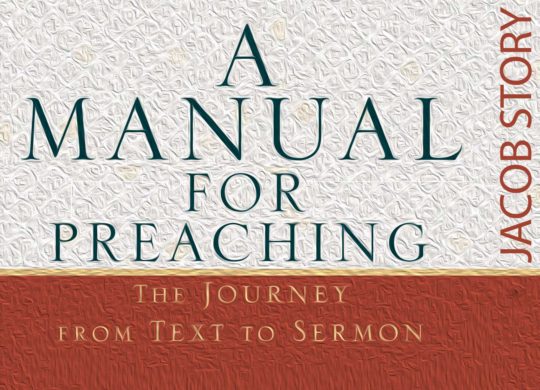Genesis 33:1–20

Jacob and Esau have rendezvoused. Jacob prostrates himself seven times before his older twin—a mark of great respect of vassal towards overlord. What Isaac had prophesied in Genesis 27:29 is inverted. Whereas father had blessed (younger) son with the words, “Your mother’s sons will bow to you,” now the blessed son is himself bowing to his sibling. He whom others would “serve” (27:29) is now “servant” of another (33:5, 14), and Esau is constantly Jacob’s “lord” (33:8, 13, 14, 15). This is effectively Jacob’s “return” to Esau of the stolen blessing. In fact, one could even see in the sevenfold bowing here a symbolic return of the sevenfold blessing of Isaac to Jacob—the latter is specifically addressed seven times in 27:28–29: “may God give you …”; “may peoples serve you”; “may nations bow to you”; “may you master your brothers”; “may your mother’s sons bow to you”; “may they be cursed who curse you”; “and may they be blessed who bless you.” The “pseudo-Esau” is returning the stolen blessing to the real Esau, undoing his sins of the past by word and by deed. His humble and contrite conciliatory efforts mark Jacob’s faith in God.
Faith manifesting in humble efforts at reconciliation and restitution.
The reunion is powerful beyond words: Esau runs to Jacob, embraces Jacob, falls on Jacob’s neck, kisses him, … and they weep (33:4). Both parties had felt the anguish of a ruptured relationship and now both parties rejoice in tears at the restoration thereof. And God brings peace between warring brothers. For all Jacob’s servanthood before his brother’s lordship, Esau chooses to address Jacob simply as “my brother” (33:9)! It is interesting that the text specifically notes that Esau “lifted up his eyes and saw” the women and children—the products of God’s grace (33:5)—while Jacob “lifted up his eyes and saw” Esau and his four hundred (33:1). It may not be too farfetched to assume that if one was the result of God’s grace, then the other was too: yes, God had blessed Esau, as well!
Faith manifesting in humble efforts at reconciliation and restitution, in tandem with God’s inscrutable work.
For the first time, Jacob acknowledges God’s “grace” (33:5, also 33:11) upon his life, a fact obvious to readers, but only now voiced by the protagonist of these stories, Jacob. The two instances of God’s favor are interwoven with the three instances of Jacob’s seeking Esau’s favor (33:8, 10, 15; also 32:5). As well, minkhah, “present” (33:10), also means “sacrifice,” as used in Leviticus 2:1, 4, 5, 6, 15. All of this puts Jacob’s relationship with Esau in equivalence with his relationship to God. In fact, it is explicitly mentioned by Jacob that “I see your face as one sees the face of God” (Gen 33:10).
Getting right with fellowmen = getting right with God. And note the pointed difference between 33:10a and 33:11a—minkhah in the first becomes brakah, “present,” in the other (it also means “blessing”). Jacob is, to the best of his ability reconciling by making restitution.
Faith manifesting in humble efforts at reconciliation and restitution, in tandem with God’s inscrutable work, results in restoration of relationships both with God and with fellowmen.
While the brothers then separate (33:12–17), that they remain on peaceful terms is indicated in the collaboration, later, between the twins in their burial of their father, Isaac (35:29). Jacob consummates his arrival in the land of promise by building an altar (33:20), calling it “El-Elohe-Israel”: he had now recognized that Yahweh was his God, and for the first time God is linked to Jacob’s (new) name, “Israel.”
Faith manifesting in humble efforts at reconciliation and restitution, in tandem with God’s inscrutable work, results in restoration of relationships both with God and with fellowmen, acknowledged by the beneficiary.
Slightly shorter:
Faith in God is marked by seeking and extending forgiveness, thus restoring relationships with others, and also with God.











 Abe Kuruvilla is the Carl E. Bates Professor of Christian Preaching at The Southern Baptist Theological Seminary (Louisville, KY), and a dermatologist in private practice. His passion is to explore, explain, and exemplify preaching.
Abe Kuruvilla is the Carl E. Bates Professor of Christian Preaching at The Southern Baptist Theological Seminary (Louisville, KY), and a dermatologist in private practice. His passion is to explore, explain, and exemplify preaching.